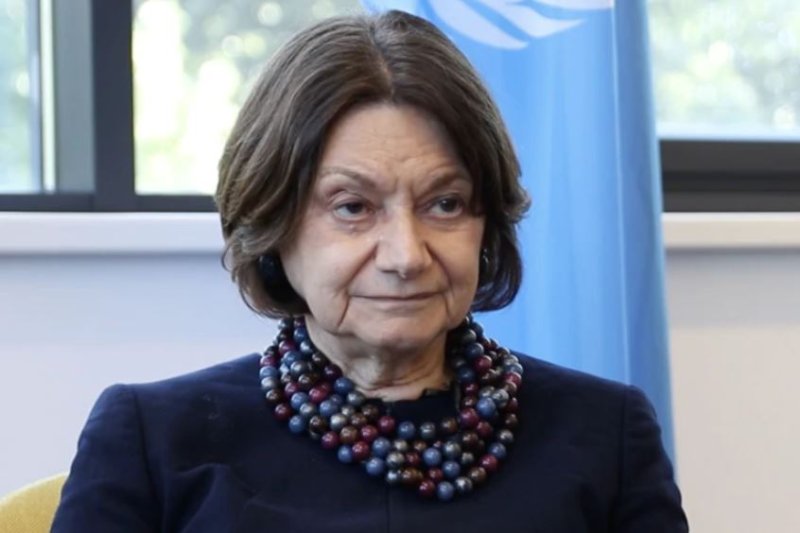Ms. DiCarlo Suggests Bosnian Politicians Must Gove Up Hate Speech
UN Under-Secretary-General for Political Affairs Rosemary DiCarlo said Bosnian politicians must unite on the path of reform and progress in the country, which has faced deep ethnic divisions since the end of the war in the 1990s.
Ms. DiCarlo, who stayed in Sarajevo, said that members of the Bosnia and Herzegovina presidency, Shefik Dzaferovic, Milorad Dodik and Zeljko Komsic, noted the importance of concrete steps to foster dialogue, mutual respect and trust between communities.
In an interview with VOA's Bosnian service, Ms. DiCarlo said that “ongoing divisions in society are a source of lack of progress in Bosnia and Herzegovina. It is necessary that not only the political leaders but also the society unite to work for the future of this country and to enable the citizens to fulfill their possibilities ".
She said she discussed with leaders in Sarajevo the current political and economic situation in Bosnia and Herzegovina and many issues affecting the country's progress, including the COVID-19 pandemic and the war in Ukraine.
Clearly, she said, a union is needed for the reforms needed to move forward, and "a common vision for Bosnia's future is also needed. There is clearly a desire to be part of the European Union that we fully support, and I told that to all three leaders."
The war in Ukraine has raised concerns about the situation in Bosnia which is facing the worst political crisis since the end of the war.
"I talked to them about some of the divisions we see in society, including the rise of hate speech, and I encouraged all three leaders to be leaders in combating such phenomena," said Di Carlo.
The United Nations, she said, has a number of initiatives to boost economic progress, but is working hard on peacebuilding and reconciliation, especially with young people.
"There are a number of areas that need to be addressed when it comes to building peace and stability in Bosnia and Herzegovina. The first point is the social contract of citizens with their leaders. This is an important road ahead… I have high hopes for Bosnia and Herzegovina. "Clearly there is a need for some reforms in the economic, political and rule of law fields, but there is also a need for respect for differences and rights in society," said Ms DiCarlo.
After the war of the 1990s, which left more than 100,000 dead, Bosnia split into two autonomous entities, the Republika Srpska and the Bosniak and Croat-dominated Federation, linked by a central government in Sarajevo.
Pro-Russian leader Milorad Dodik has advocated for years the separation of the Bosnian Serb semi-autonomous entity from the rest of the multiethnic country.
Earlier this year, the United States sanctioned Mr Dodik and several other Bosnian politicians for "corrupt activities" and "continuing threats to the stability and territorial integrity of Bosnia and Herzegovina".













